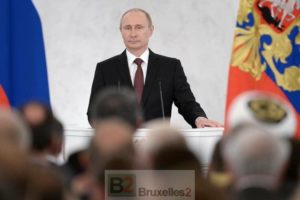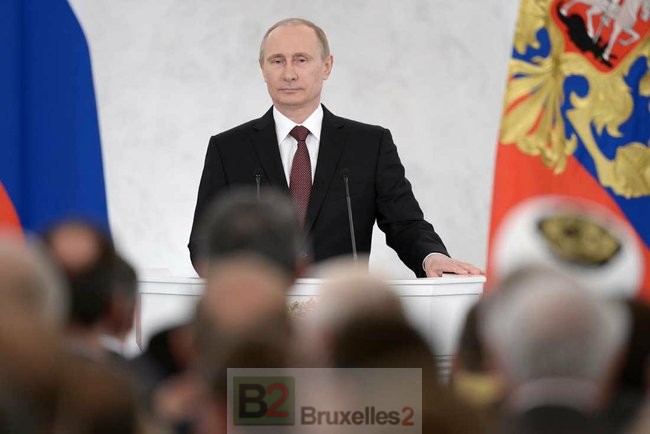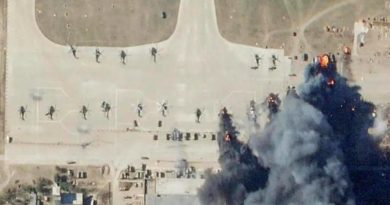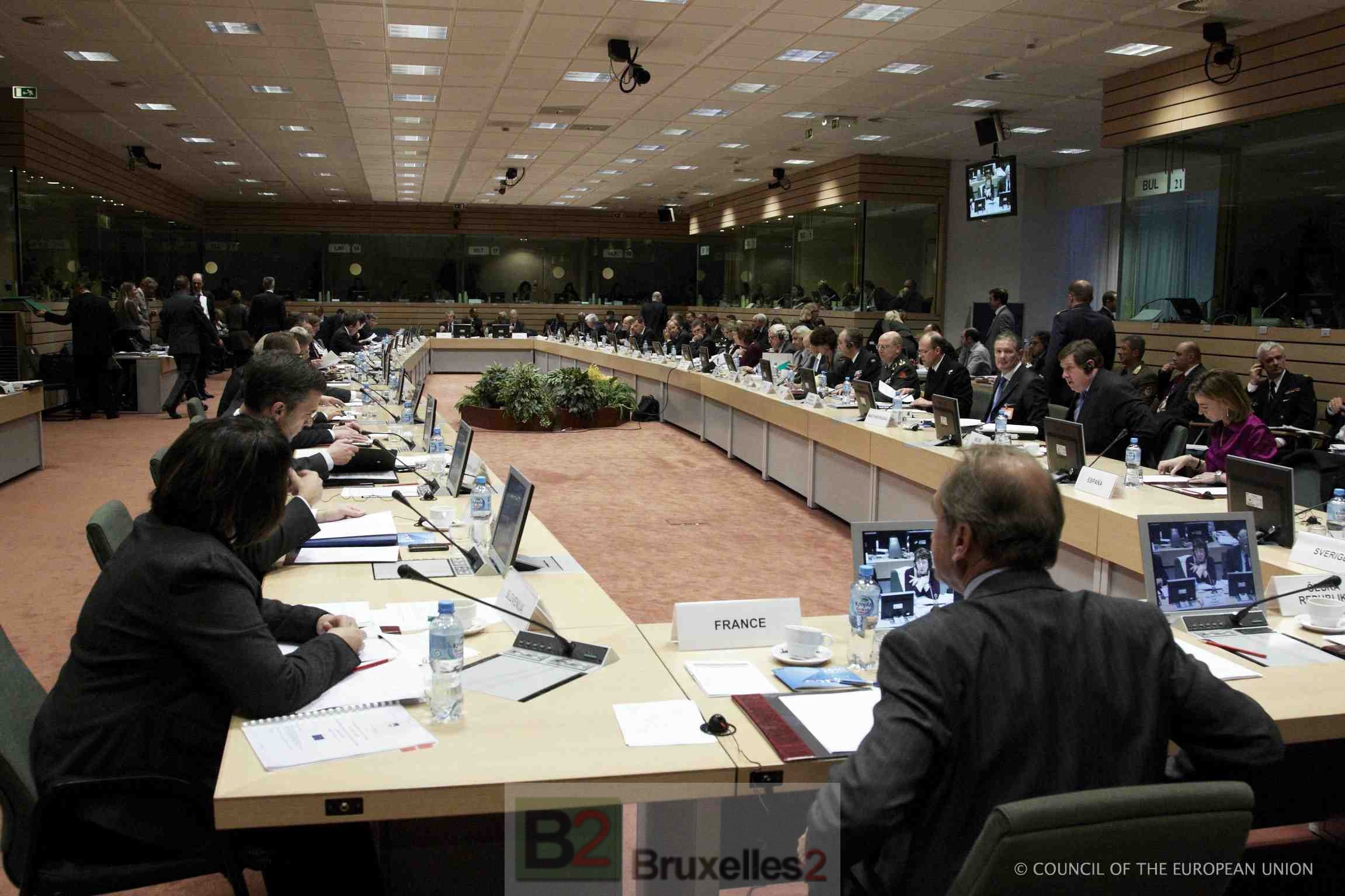Crimea in Russia. It's done. Following !
 (BRUSSELS2) Laughing like his first shirt at the first European measures and sanctions, Russian President Vladimir Putin signed this noon (13 p.m. Moscow) the decree "On Executing the Agreement between the Russian Federation and the Republic of Crimea on the Admission of the Republic of Crimea into the Russian Federation and the Creation of New Constituent Entities within the Russian Federation". This document aims to:
(BRUSSELS2) Laughing like his first shirt at the first European measures and sanctions, Russian President Vladimir Putin signed this noon (13 p.m. Moscow) the decree "On Executing the Agreement between the Russian Federation and the Republic of Crimea on the Admission of the Republic of Crimea into the Russian Federation and the Creation of New Constituent Entities within the Russian Federation". This document aims to:
“1. To approve the draft Agreement between the Russian Federation and the Republic of Crimea on the Admission of the Republic of Crimea into the Russian Federation and the Creation of New Constituent Entities within the Russian Federation.
“2. To consider it expedient to sign the Agreement envisaged hereunder at the highest level. »
Flawed reasoning
Russia is not behaving as the Europeans would have hoped. Each time the Europeans expect an appeasement, the Kremlin adds a ladle. All the arguments heard — the sanctions will force him to give in, Russia will be isolated on the international scene, it's bad for Russia's image, he won't go any further, Russia will suffer, etc. .— seem more intended for reassurance than for objective observation. Quite simply because the reasoning is flawed. It is based on a "Western" way of functioning that the Russian leader does not follow, not that he is completely irrational. But it obeys another rationality.
All power engaged in one cause
For Moscow, rightly (or wrongly), Ukraine is a national cause. And to defend this cause, it engages its forces, all its forces: economic, military, political, diplomatic. It thus plays on all sides: on the one hand, force (occupation on the ground, provocations, revelations of eavesdropping, etc.); on the other, discussion, dialogue, diplomacy. Not in a fool's game (the fools are those who believe in it) but with a single objective: to recover Ukraine or, at least, all that can be taken from it. Where the Europeans believe, or hope, that there will be a dialogue, a respite in Russian advances, they are mistaken. Now that Crimea has joined (or rather rejoined, seen from Moscow) the Russian fold, other maneuvers can begin in the southern border of the country (towards Odessa) or in the east of Ukraine, or even in the southwest. (Transnistria).
An unequal fight
Russian power has a capacity for resilience greater than that of European states. Europeans are not prepared to suffer for Ukraine. Their resilience is weak. And their interests scattered. The fight is therefore unequal... Putin is looking for a balance of power, confrontation. Where Europeans seek to avoid it. Result: the more the Europeans threaten, the more the Kremlin executes the conditions obliging the Europeans to execute their threats or withdraw. It is thus symptomatic that each time the Westerners have set themselves a deadline: Putin has played a part before this deadline, thus forcing the Europeans to readjust their response, in disaster. If necessary, he sends one of his diplomats, S. Lavrov for example, to apply a little ointment, just to surprise even better at the next stage. The escalation will continue until one of the "players" says banco or withdraws. We are not very far from the breaking point today.


